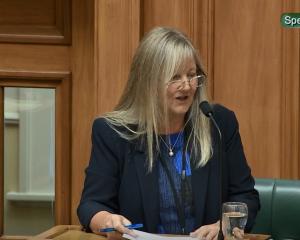
United Future want a $25 fee placed on tourist visas with all revenue going towards maintaining and upgrading the conservation estate.
Leader Peter Dunne said the cost of maintaining walking tracks, rivers and lakes currently fell on locals.
``This policy allows the costs of maintenance and upgrades to be shared amongst all the people who make use of our conservation areas.''
The new policy comes after the Green Party last month announced a ``Taonga Levy'' to fund conservation efforts and regional tourism, and that would increase current border charges for international visitors by between $14 to $18 to a total border levy of around $40.
Major tourism organisations, including Air New Zealand and the Tourism Industry Association, are currently working on proposals for a large central fund for tourism infrastructure.
Prime Minister John Key has said funding ideas, including a tourist tax or levy, would be considered.
United Future's new conservation levy policy has been released as part of its new environmental policy package.
Other policies in the package include:
* A $5 million annual grant to promote electric vehicle ownership, that would allow up to $5000 to be claimed, or up to 30 per cent of the cost of a vehicle, whichever is smaller.
The scheme would also apply to businesses replacing company fleets.
* A $10 million per annum contestable fund for promoting innovation and research into the environment.
* A fund of the same value for homeowners to purchase solar panels and similar units, with homeowners able to claim up to $5000 or 80 per cent of the cost, whichever is smaller.
* Develop new protection categories for marine reserves that would ban commercial fishing and allow recreational fishing.
* Get government to take a lead in encouraging owners of unproductive farming land to gift it to public ownership so it can be planted with native trees and act as a permanent ``carbon sink''.












